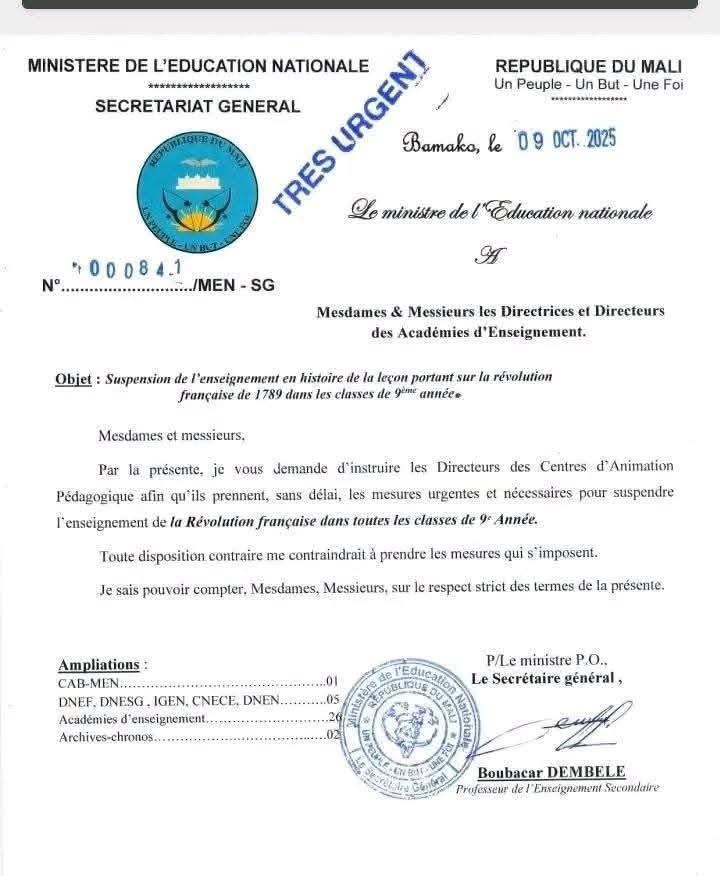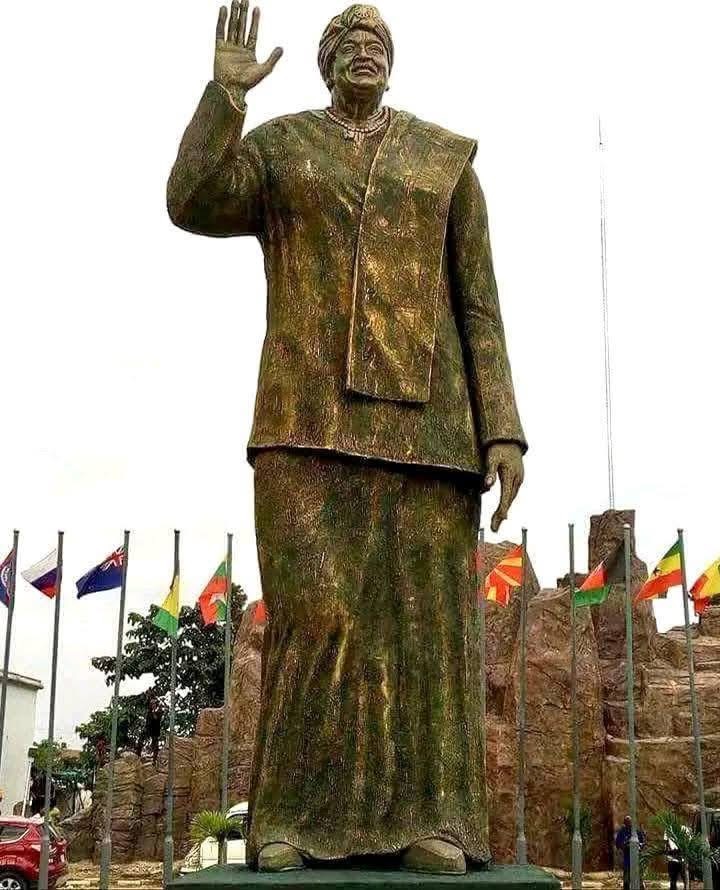The government of Mali has officially removed the French Revolution from the national school curriculum, marking a significant shift in the country’s educational and cultural policy under President Assimi Goïta.
The decision, announced this week by the Ministry of National Education, follows a directive from President Goïta aimed at reforming Mali’s education system to reflect national history, African heritage, and local realities rather than European historical narratives.
According to government officials, the move forms part of a broader effort to “decolonize” the Malian curriculum and strengthen national identity following years of political transition and growing tensions with France.
“The time has come for Malian students to study the revolutions, empires, and leaders that shaped Africa, not just those that shaped Europe,” an education ministry spokesperson said.
The French Revolution, long regarded as a cornerstone of modern European political thought, has traditionally been a major component of history education across former French colonies. Its removal signals a continuing break from France’s influence in Mali’s institutions since the military government assumed power in 2021.
In recent years, the Goïta administration has pursued policies emphasizing sovereignty and self-determination, including the expulsion of French troops, the withdrawal from the G5 Sahel alliance, and strengthened ties with Russia and other non-Western partners.
Education experts in Bamako have described the curriculum reform as both symbolic and practical, intended to inspire a generation of Malians to draw lessons from their own historical struggles and achievements.
Further details on the revised history syllabus are expected to be released later this month.













